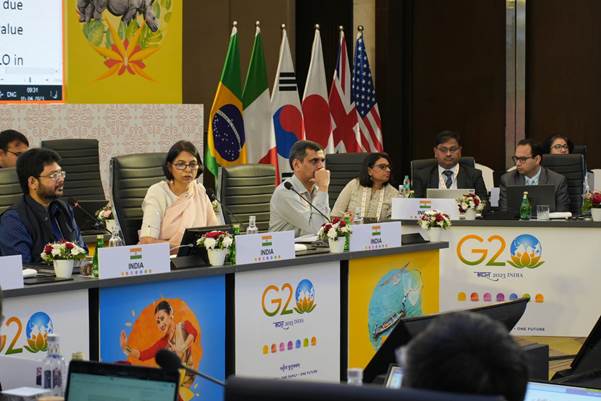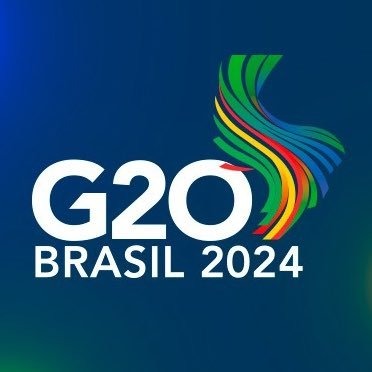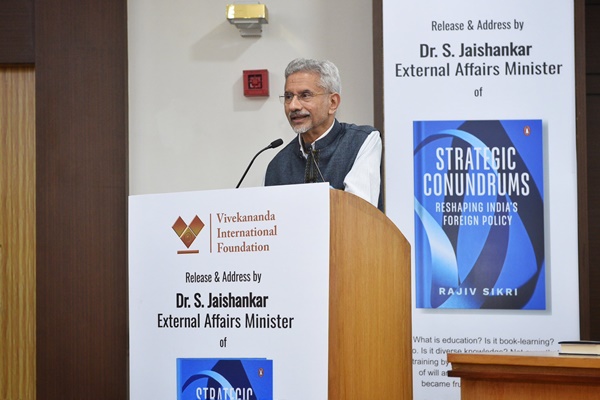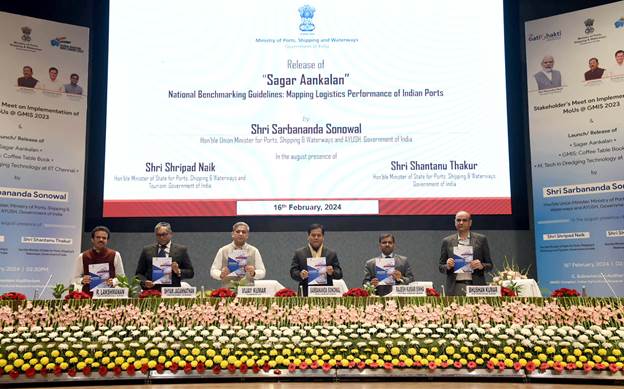The second day of the G20 Employment Working Group (EWG) meeting in Brasilia saw significant strides in fulfilling commitments made under the Indian Presidency in 2023 regarding the establishment of an international reference classification of occupations and skills, aimed at facilitating skills-based international labour mobility.
 The day commenced with a dedicated session focused on implementing commitments made during India’s G20 presidency. Ms. Sumita Dawra, Secretary of Labour & Employment, underscored the crucial initial step taken towards global skill harmonization. Collaboration between the International Labour Organization (ILO) and the Organisation for Economic Co-operation and Development (OECD) resulted in the drafting of terms of reference for a feasibility study on the international reference classification. This two-year study will encompass a pilot project in select sectors, including IT, care, and green sectors.
The day commenced with a dedicated session focused on implementing commitments made during India’s G20 presidency. Ms. Sumita Dawra, Secretary of Labour & Employment, underscored the crucial initial step taken towards global skill harmonization. Collaboration between the International Labour Organization (ILO) and the Organisation for Economic Co-operation and Development (OECD) resulted in the drafting of terms of reference for a feasibility study on the international reference classification. This two-year study will encompass a pilot project in select sectors, including IT, care, and green sectors.
The Indian delegation emphasized the importance for G20 countries to honour the commitment made during India’s presidency in 2023 by integrating basic and extended indicators into their national surveys to map global skills gaps. This classification of occupations and skills is expected to benefit developed, developing, and least developed nations alike.
Joint Secretary Sh. Rupesh Thakur outlined that upon completion, the global framework will address the immediate, medium, and long-term skill requirements of G20 countries and beyond. It will create employment opportunities, particularly for workers from emerging economies like India and Brazil, fostering demand-based employment mobility and enhancing global job market efficiency.
Subsequent sessions delved into critical issues such as the impact of care policies and equal pay in promoting gender equality in the workforce. The EWG recognized the challenges faced by women due to disproportionate caregiving responsibilities and stressed the need for supportive care policies.
India’s proactive measures were highlighted, including:
– Conducting a Time Use Survey in 2019 to analyze the distribution of paid and unpaid activities among genders.
– Implementation of the Palna Scheme, offering quality daycare facilities for children of working women.
– Enactment of the Code on Social Security 2020, extending social security benefits to gig and platform workers, including women.
– Extension of paid maternity leave from 12 to 26 weeks and mandatory crèche facilities in establishments with 50 or more employees.
– Provision in labour laws for work-from-home arrangements, especially for women.
Another key agenda was addressing gender pay disparity. The Indian delegation outlined government efforts that have contributed to a notable decrease in the gender pay gap in India, such as:
– Enactment of the Code on Wages, 2019, aiming to eliminate discrimination in work conditions.
– Implementation of schemes like Pradhan Mantri Mudra Yojana and Skill India Mission to empower women economically.
– Progress in MGNREGA implementation, assisting in reducing the gender pay gap.
The meeting concluded with comprehensive discussions on workforce equality, emphasizing its economic necessity. India’s multifaceted approach to enhancing female participation in the workforce, including legislative interventions and schemes promoting women’s representation in various sectors, was applauded.
The collective resolve of G20 countries to continue advancing gender equality, diversity, and social security was reaffirmed, marking a significant step towards inclusive and equitable labour practices globally.




